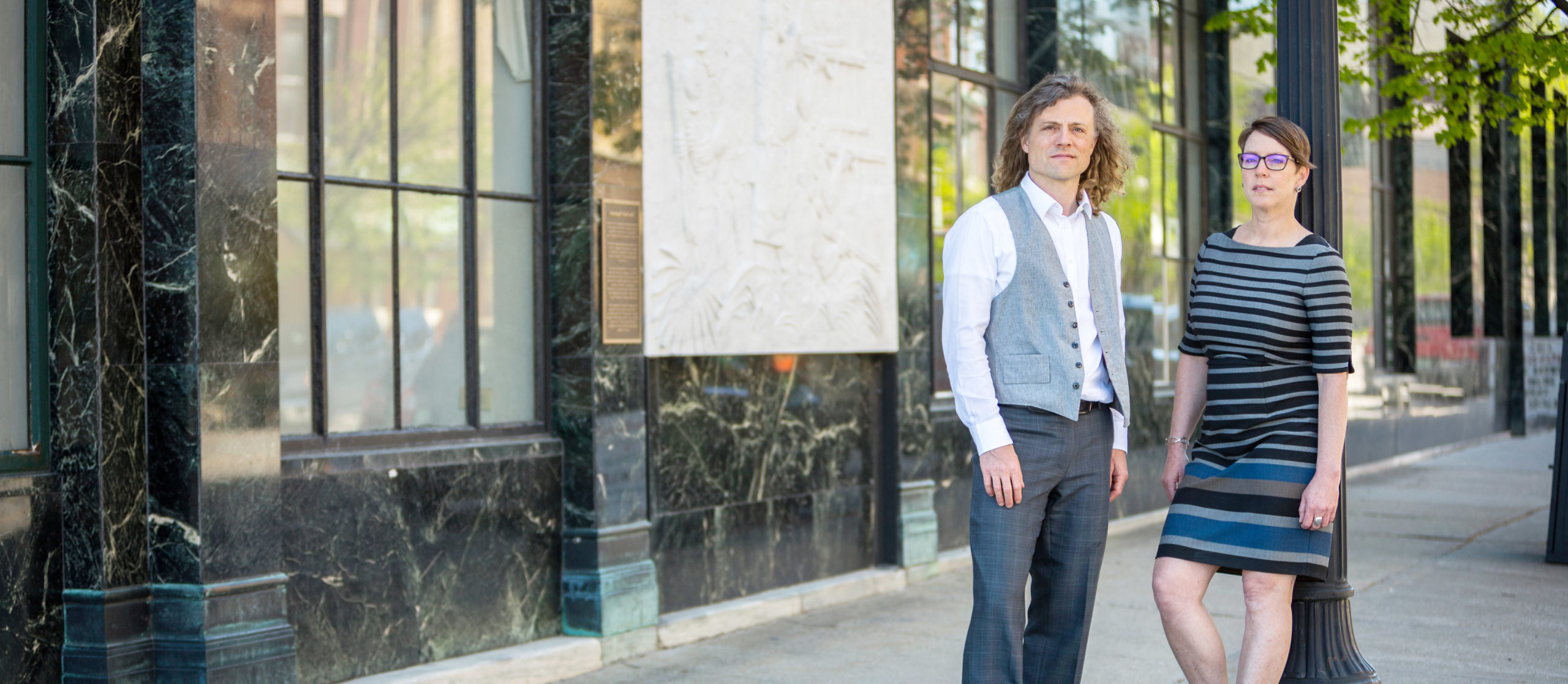
Rutland, VT Traumatic Brain Injury Attorney
Rutland, VT
Traumatic Brain Injury Attorney
While an injury to the brain may not necessarily be visible to the naked eye, it is an injury type that can have serious effects on a person’s life, including long-term disability. At the offices of Larson & Gallivan Law, our Rutland, VT traumatic brain injury attorney understands the potentially severe impacts of a traumatic brain injury (TBI), and can advocate for you if you believe that your TBI is the result of another’s negligence. Please reach out to our law firm today for help navigating the personal injury process and recovering financial compensation to help you pay for your damages.

What Is a
Traumatic Brain Injury?
A traumatic brain injury refers to any injury that causes a disruption in the normal function of the brain. Typically, a TBI is the result of a bump or a blow to the head, but there are many different types and causes of traumatic brain injuries, as discussed in more detail below.
Types of Traumatic Brain Injuries
The Brain Injury Alliance of Utah (BIAU) provides a comprehensive overview of the types of TBIs. Types of brain injuries include:
- Concussions Concussions are the most common type of TBI, and the brain injury type that most people think of when they think of TBIs. A concussion is usually caused by a blow to the head–the head being hit with a blunt object or coming in contact with a hard surface, such as the ground. However, a concussion may also be the result of violent shaking of the head, a gunshot wound, or force from a whiplash injury.
- Contusion A contusion refers to bleeding on the brain. Contusions happen when the head is directly impacted with force.
- Diffuse axonal When the head is shaken with force or is exposed to strong rotational forces–such as is the case in Shaken Baby Syndrome–a diffuse axonal brain injury can result. The injury occurs when brain structures tear as a result of the brain lagging between the head/skull.
- Coup-contrecoup A coup-contrecoup is a serious brain injury that occurs when the head is impacted with such force that the brain is not only impacted on the side of the site of the injury, but also on the direct opposite side of the skull wall as a result of the braining moving and slamming into the other side.
- Penetration A penetration TBI is exactly what it sounds like–a brain injury where the skull and brain are penetrated with an object or materials, such as a gunshot, knife, sharp object, etc.
- Acquired brain injury Finally, there are two types of acquired TBIs, which are TBIs that may result from things like oxygen deprivation, strokes, etc. and not necessarily from external forces. Anoxia is a term used to describe a situation in which the brain does not receive any oxygen; hypoxic is a term used to describe a situation in which the brain receives some oxygen, but not enough.
Long-term Effects of a Traumatic Brain Injury
The permanent or long-term effects of a traumatic brain injury can be difficult to predict, as they will not only vary dramatically based on the type of brain injury, but also on the individual patient and the degree of brain injury suffered. The Centers for Disease Control and Prevention (CDC) explain that a TBI can cause a wide range of functional short- or long-term effects, including impacts to:
- Emotion
- Language
- Thinking
- Sensation
A person who suffers a TBI may have complications related to regulating their emotions, thinking and processing data, speaking, reasoning, memory, language, sight and balance, and more. A TBI can also lead to certain conditions or increase the risk of certain conditions, such as epilepsy and Alzheimer’s disease.
Causes of a Traumatic Brain Injury
There are many common accident types that can lead to traumatic brain injuries. Some of the most common causes of TBIs include:
- Car accidents
- Motorcycle accidents
- Bicycle and pedestrian accidents
- Slip and falls
- Sports accidents
- Swimming pool accidents
- Assault
- Workplace accidents
If you have been involved in an accident that has resulted in a TBI, our Rutland brain injury law firm will work hard to investigate your case and determine precisely what happened. Please call us as soon as possible after your accident so we can start working on your case.
Liability for a Traumatic Brain Injury
 If your accident that led to your TBI was the result of another person’s negligence–the failure to exercise the reasonable degree of care–then you can hold that party liable for the damages that you’ve suffered.
If your accident that led to your TBI was the result of another person’s negligence–the failure to exercise the reasonable degree of care–then you can hold that party liable for the damages that you’ve suffered.
For example, if you were in a car accident caused by a speeding driver and you can prove that the accident and your TBI would not have occurred but for the driver’s action, you can hold the driver liable. An injury victim can bring forth a claim against a private individual, a property owner, a private company, an organization, or even a government entity.
In order to win a personal injury case and hold the at-fault party responsible for your full damages amount, you’ll need to prove that the party owed you a duty of care, breached the duty of care owed to you, that the breach was the proximate cause of your accident, and that you’ve suffered actual damages as a result. Types of damages that are recoverable in a brain injury claim include compensation for your medical bills, lost wages, any property losses you have suffered, and the full range of other economic or noneconomic losses, including compensation for pain, suffering, and emotional distress.
Call Our Rutland, VT Traumatic Brain Injury Attorney Today
At the office of Larson & Gallivan Law, our Rutland, VT traumatic brain injury attorney understands how dramatically your life may have changed if you’ve been in an accident that left you with a serious TBI. If you believe that someone else’s negligence contributed to your accident and injury, please reach out to the firm of Larson & Gallivan Law today for your free, no-obligation consultation. We work on a contingent-fee basis and offer personalized, comprehensive legal services. Call today to get started.
Call Today! (802) 327-8458
